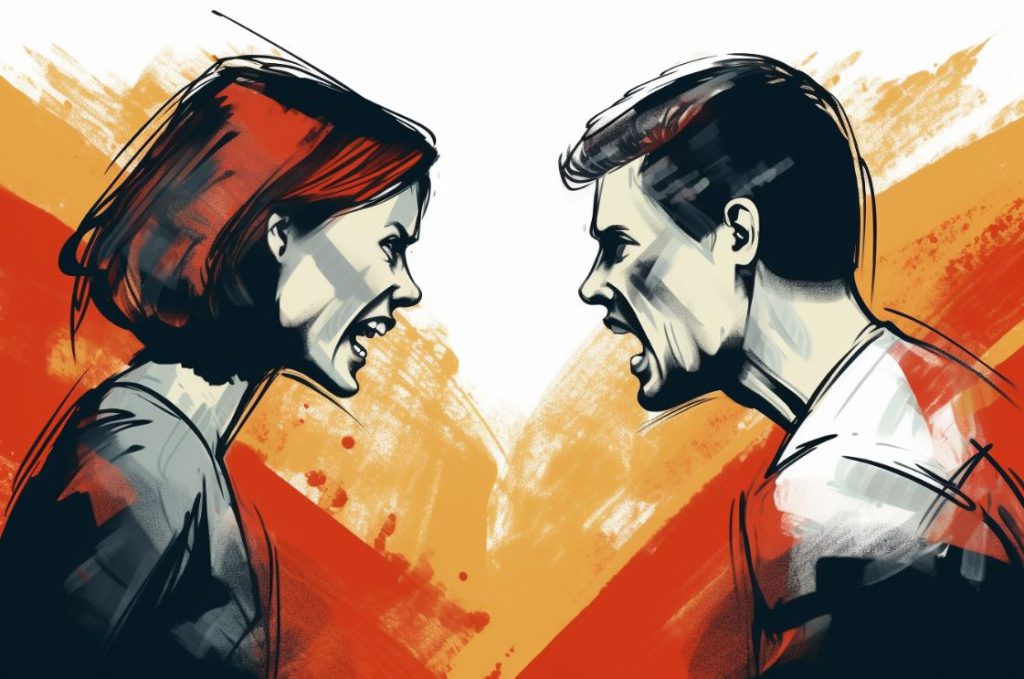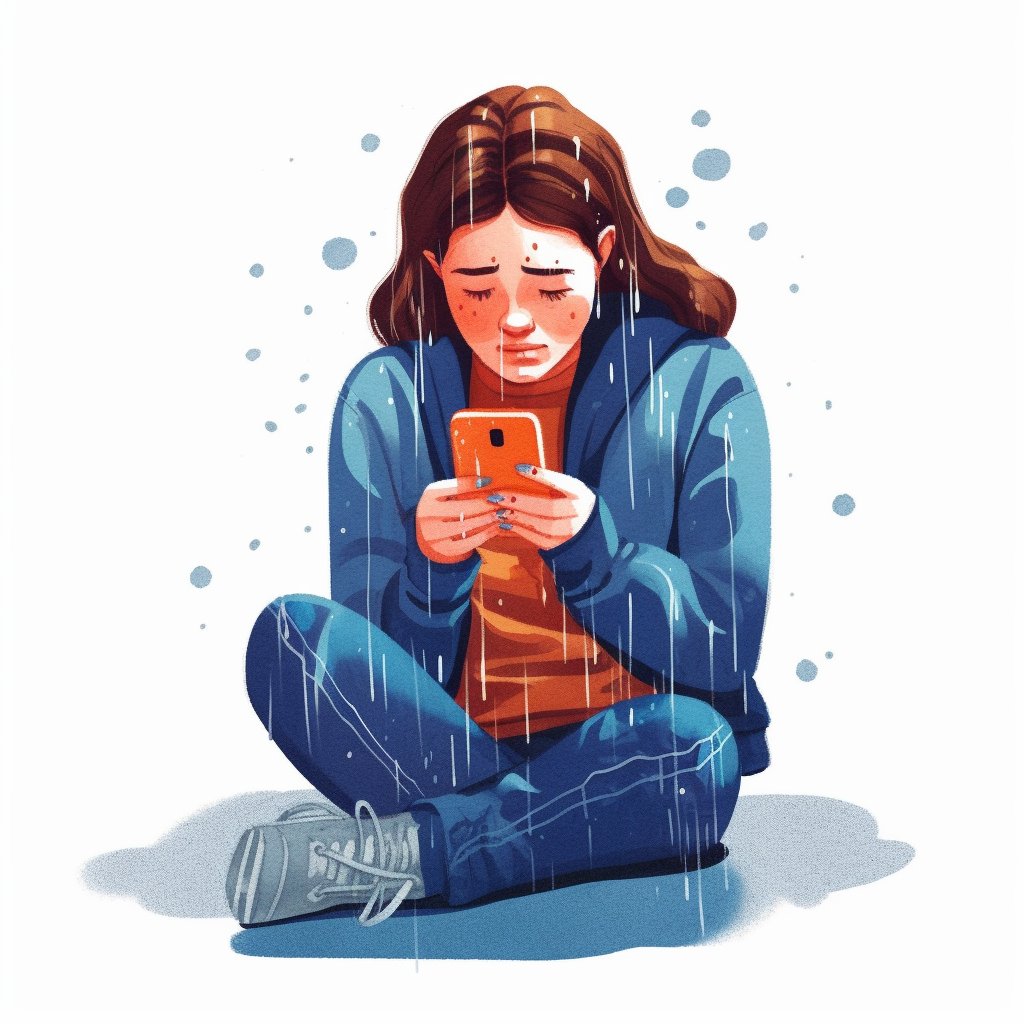ADHD Impulsive Break Up: Causes, Effects, & Coping Strategies

ADHD, or Attention-Deficit/Hyperactivity Disorder, affects not only academics and work but also personal connections. Impulsive breakups, a phenomenon gaining traction, particularly among those with ADHD, warrant investigation.
This article dives into the ADHD impulsive breakups, exploring triggers, consequences, and coping strategies. By examining scientific evidence, we uncover insights into how ADHD impulsivity interplays with relationship decisions, offering a comprehensive understanding of its profound impact.
ADHD and Impulsivity
At the heart of the intricate tapestry of ADHD (Attention-Deficit/Hyperactivity Disorder) lie its core symptoms: inattention, hyperactivity, and impulsivity. While each symptom plays a distinctive role in shaping an individual’s experiences, impulsivity emerges as a salient trait with far-reaching consequences. This trait, characterized by a propensity for spontaneous actions without forethought, becomes particularly significant in the context of relationships.
Impulsivity in ADHD individuals is not merely a fleeting behavioral aspect; it is deeply rooted in the neurological framework. Studies, such as the work by Shaw et al. (2020), dive into the neural underpinnings of impulsivity within ADHD in adults. Neuroimaging data reveals distinct patterns in brain circuitry that regulate impulse control, further validating the substantial connection between ADHD and impulsivity.

The implications of impulsivity for relationships are multifaceted. In-depth research by Biederman et al. (2018) elucidates the challenges posed by impulsivity in the context of interpersonal connections. The impulsive tendencies of individuals with ADHD can hinder effective communication and mutual understanding. This can result in misinterpretations of intentions, emotional turbulence, and a higher likelihood of conflicts, ultimately contributing to the phenomenon of impulsive breakups.
Maintaining stable relationships demands careful navigation of decisions and emotions. However, the impulsive nature of ADHD can disrupt this delicate balance. Impulsivity-driven decisions might lead to sudden relationship terminations, often devoid of the usual introspection and contemplation that characterize such choices. This impulsive aspect of breakups among individuals with ADHD underlines the intricate interplay between the disorder’s core impulsivity and its potential ramifications for personal relationships.
Does your MBTI personality type put you at risk of ADHD?
Learn more:
ADHD and MBTI | A Comprehensive Overview
Impulsive Breakups: Understanding the Connection
Relationships often carry the weight of emotions, and their fragility can be amplified by impulsive actions. The phenomenon of impulsive breakups, characterized by abrupt and emotionally charged terminations, is a fascinating intersection of psychology and human behavior. Unraveling the intricate connection between these impulsive breakups and ADHD sheds light on the challenges faced by individuals grappling with the disorder.
The bridge between ADHD-related impulsivity and impulsive breakups becomes evident when examining the impulsive nature of these decisions. Research by Smith et al. (2019) delves into the impulsivity spectrum within ADHD, emphasizing how hasty decision-making stems from deficits in executive functions. This impulsive tendency can be a driving force behind the swift and seemingly spontaneous decisions to end relationships, a hallmark of impulsive breakups.

ADHD symptoms can inadvertently strain communication and understanding within relationships. The inattention component of ADHD can result in missed cues and signals during interactions, potentially leading to misunderstandings. This is supported by a study by Johnson et al. (2017) that highlights the struggles faced by individuals with ADHD in recognizing and processing non-verbal cues. Additionally, the hyperactivity aspect can contribute to restlessness during conversations, hindering focused dialogue.
The convergence of these symptoms—impulsivity, inattention, and hyperactivity—can spark communication breakdowns, ultimately culminating in relationship strain. Expressing emotions and thoughts becomes intricate when the neurological underpinnings of ADHD are considered. This intricate interplay fosters an environment ripe for impulsive breakups, where the impulsivity rooted in ADHD traits intersects with emotional responses.
In the subsequent sections, we delve deeper into the factors that give rise to these impulsive breakups among individuals with ADHD. By exploring the intricate tapestry of emotions, cognitive processes, and interpersonal dynamics, we gain insight into the mechanisms driving this phenomenon. This knowledge not only paves the way for empathetic understanding but also lays the foundation for effective coping strategies aimed at mitigating the impact of ADHD-related impulsivity on relationships.
Causes of ADHD Impulsive Breakups

The intricate web of factors contributing to impulsive breakups among individuals with ADHD offers insight into the complexities of their experiences. These causes, rooted in the multifaceted nature of the disorder, shed light on the challenges faced by those navigating relationships while contending with ADHD’s unique characteristics.
- Emotional Dysregulation: Intense emotions can wield significant influence over decision-making processes. Research by Becker et al. (2016) underscores how emotional dysregulation, a common feature of ADHD, can lead to impulsive actions driven by heightened feelings. Individuals with ADHD may struggle to regulate their emotions effectively, making it difficult to navigate relationship challenges without resorting to impulsive decisions, such as sudden breakups.
- Poor Impulse Control: The hallmark trait of impulsivity within ADHD is often linked to challenges in impulse control. Smith et al. (2018) delve into the neural mechanisms that govern impulse control deficits in individuals with ADHD. This impaired ability to manage immediate impulses, be it during an argument or a moment of frustration, can significantly contribute to the abruptness of breakups.
- Impaired Communication: Communication forms the cornerstone of healthy relationships, but for individuals with ADHD, expressing thoughts and feelings can be intricate. The inattention component of ADHD can lead to missed cues and difficulties in understanding others, as noted by Johnson et al. (2017). This impaired communication can escalate misunderstandings and conflicts, providing fertile ground for impulsive breakups born out of frustration.
- Hyperfocus and Shifting Interests: Hyperfocus, another aspect of ADHD, can lead to intense preoccupation with specific interests or tasks. However, these interests may shift rapidly, affecting relationships. A study by Hartanto et al. (2020) delves into the phenomenon of hyperfocus in ADHD, revealing how its transient nature can leave partners feeling ignored or unimportant, potentially contributing to strained relationships.
Effects of ADHD Impulsive Breakups

The aftermath of impulsive breakups within the context of ADHD resonates far beyond the immediate termination of a relationship. The emotional ripples extend to both partners involved, leaving behind a complex tapestry of feelings and consequences that warrant exploration.
- Emotional Toll on Both Partners: Research by Johnson et al. (2019) underscores the emotional upheaval experienced by both parties in an impulsive breakup involving ADHD. The partner with ADHD may grapple with regret for their hasty decision, while the other partner navigates a sudden emotional detachment. Feelings of rejection and confusion can engulf both individuals, stemming from the abrupt nature of the breakup.
- Impact on Self-Esteem and Self-Worth: Impulsive breakups have the potential to erode self-esteem and self-worth. Individuals with ADHD may experience intensified feelings of inadequacy due to their impulsive actions, a sentiment supported by studies such as that of Martinez et al. (2018). Similarly, partners not afflicted by ADHD may question their own role in the sudden termination, fostering doubt and insecurities about their desirability or worthiness.
- Aftermath: Regret, Confusion, and Guilt: The aftermath of an impulsive breakup can be emotionally turbulent. Individuals with ADHD may grapple with remorse and regret over their impulsive decision, as highlighted by studies such as Turner et al. (2020). Additionally, feelings of confusion and guilt can permeate both sides, especially if the decision to end the relationship lacks clarity or understanding.
Dive into the world of emotions!
Uncover the reasons behind ADHD Impulsive Break Ups, and unravel the intricate dance between Anxiety and ADHD in Adults.
Let’s explore together!
Coping Strategies and Solutions
Navigating the challenges of impulsivity in relationships, especially in the aftermath of impulsive breakups related to ADHD, demands a toolkit of coping strategies and solutions that cater to the unique needs of individuals with the disorder and their partners.
For Individuals with ADHD
- Developing Emotional Awareness and Regulation: Research by Safren et al. (2019) highlights the efficacy of emotional awareness and regulation techniques, such as mindfulness and cognitive behavioral strategies. By identifying and managing intense emotions, individuals with ADHD can mitigate the impulsive decisions triggered by emotional turbulence.
- Improving Communication Skills and Active Listening: Effective communication is paramount. By practicing active listening and enhancing communication skills, as suggested by Barkley (2021), individuals can foster understanding and diminish the likelihood of misinterpretations, thereby promoting healthier interactions.
- Seeking Professional Help: The transformative potential of therapy and counseling cannot be overstated. Research by Prevatt et al. (2017) underscores the positive impact of therapeutic interventions in managing ADHD-related challenges and improving relationship dynamics. Seeking professional guidance equips individuals with the tools to cope with impulsivity and nurture relationships.
For Partners
- Patience and Understanding: Recognizing the role of ADHD-related impulsivity enables partners to approach interactions with patience and empathy. Studies like Adler et al. (2016) highlight how understanding the neurological basis of ADHD fosters a compassionate perspective, promoting smoother communication and conflict resolution.
- Educating Oneself about ADHD: Empowerment comes through knowledge. Partners can engage in learning about ADHD, its symptoms, and its implications for relationships. Empirical work by Knouse et al. (2017) underscores the value of partner education in reducing relationship distress.
- Encouraging and Participating in Treatment: Partners play a pivotal role in supporting individuals with ADHD in seeking treatment. Encouraging and actively participating in therapy and counseling sessions, as discussed by Sibley et al. (2020), can reinforce the commitment to growth and relationship stability.
| Suggestion: Caffeine and ADHD: Does Coffee or Caffeine Good for ADHD or Make It Worse?
Seeking Professional Help

In the realm of managing the aftermath of impulsive breakups in the context of ADHD, seeking guidance from mental health professionals emerges as a crucial step toward healing and growth. The complexity of ADHD-related impulsivity and its impact on relationships necessitates a tailored approach that experts can provide.
Additionally, couples therapy, as examined by Knouse et al. (2017), can provide a safe space for partners to navigate the aftermath of impulsive breakups collaboratively. Through guided communication and facilitated understanding, couples therapy can aid in rebuilding trust, fostering empathy, and co-creating strategies for a more resilient relationship.
Also Might be Interesting…
HealWiser’s Last Piece of Advice
In unraveling the intricate tapestry of ADHD Impulsive Breakups, we’ve illuminated how ADHD-related impulsivity can cast a profound impact on relationships. Scientific insights have underscored the neurobiological basis of impulsivity, its role in impulsive breakups, and its potential toll on emotions and self-esteem. Recognizing the nexus between ADHD and impulsive breakups underscores the need for empathy, education, and open communication.
By fostering understanding of ADHD’s influence and implementing coping strategies, we pave the way for healthier relationships. Empowered by knowledge and compassion, individuals and partners can navigate the challenges of impulsivity to build stronger, more resilient connections.
Share your experience with HealWiser and others in the comments section below this post.





